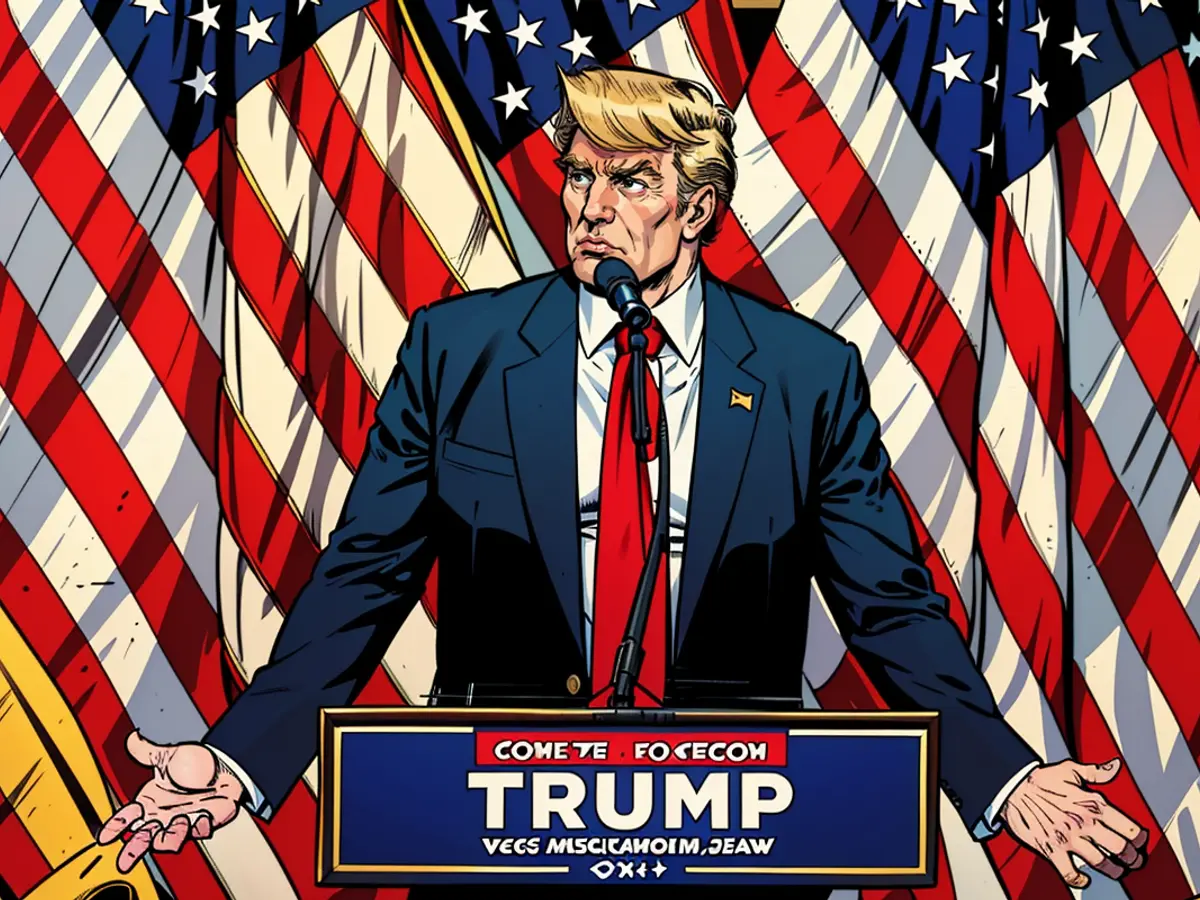Consequence of immunity decision for Trump: sentencing postponed
Trump was found guilty by the jury in all 34 charges of the bribe case on May 30th for concealing a hush money payment of 130,000 dollars (approximately 122,000 Euros today) to former porn star Stormy Daniels, using falsified business documents. Trump is the first ex-US President in history to be criminally charged.
However, the Supreme Court granted Trump partial immunity in a decision announced on Monday. The Court found that US Presidents have protection against later criminal prosecution for official actions, but not for unofficial ones.
Shortly after, Trump's lawyer Todd Blanche requested the judge for permission to appeal the verdict and to postpone the sentencing. District Attorney Alvin Bragg stated that he would not oppose the postponement of the hearing but considered Trump's arguments to be "unfounded."
It is unlikely that a prison sentence for the 78-year-old, who intends to run against Amtsinhaber Joe Biden in the presidential election in November, will occur. Experts expect a probation or fine sentence since Trump was charged for the first time and it is not a violent crime.
Trump's lawyers aim to achieve a complete annulment of the verdict. Trump himself wrote on his online network Truth Social on Tuesday that the impact of the immunity ruling was "a loud and clear signal for justice" in the US.
The Supreme Court did not grant Trump full immunity for all his actions during his presidency. The Court explicitly excluded such actions from the protection against prosecution that have a "private" character.
The payment of 130,000 dollars (approximately 122,000 Euros today) was made to Stormy Daniels before Trump's presidency in the White House. However, it was paid by Trump's former lawyer Michael Cohen, who later received the money back from Trump while he was already President.
Juraprofessor Asha Rangappa from Yale University expressed the opinion that the behavior for which Trump was convicted seemed "far removed from his official duties." However, the Supreme Court provided only limited guidance in its ruling, making it "difficult to know what counts and what doesn't."
The Supreme Court's decision specifically referred to another case, namely the indictment against Trump before a federal court regarding his attempts to overturn his election loss to Biden in 2020.
According to Rangappa, it is not only impossible to criminally prosecute a President for their official actions while in office based on this ruling. "If a behavior is official, it cannot even be used as evidence, motive, or intent for another crime," Rangappa said.
This aspect of the ruling will have consequences for the ongoing court proceedings regarding the allegations of election manipulation, according to Juraprofessor Steven Schwinn from the University of Illinois in Chicago: It will "significantly hinder the prosecution from proving that Trump's unofficial conduct was illegal."
In the lawsuit against Trump, there are issues regarding his role in the Capitol storming in Washington D.C. in January 2021. Special prosecutor Jack White, who obtained the indictment against the US President, had previously expressed the view before the Supreme Court decision that at least part of the indictment concerned "private" and not official actions.
The trial was supposed to begin earlier, in March, but was postponed due to the unresolved immunity question. Now, everything speaks against the trial starting before the Presidential election in November.
- Alvin Bragg, the district attorney, stated that he would not oppose the postponement of Trump's sentencing.
- Trump's lawyer, Todd Blanche, requested the judge to allow an appeal and delay the sentencing after Trump was found guilty.
- Trump's lawyers aim to completely overturn the verdict following the Supreme Court's immunity decision.
- Juan Merchan, the judge, has not yet made a final decision on the postponement request.
- The Supreme Court granted Trump partial immunity, protecting him from prosecution for official actions but not unofficial ones.
- The hush money process involving Trump, Stormy Daniels, and Michael Cohen occurred before Trump's presidency.
- Asha Rangappa, a juraprofessor from Yale University, believes that the behavior Trump was convicted for was "far removed from his official duties."
- Steven Schwinn, a juraprofessor from the University of Illinois in Chicago, says the Supreme Court's ruling will significantly hinder the prosecution in the election manipulation case.
- The allegations of election manipulation in the Capitol storming case are still ongoing, and Trump has a role in these proceedings.







